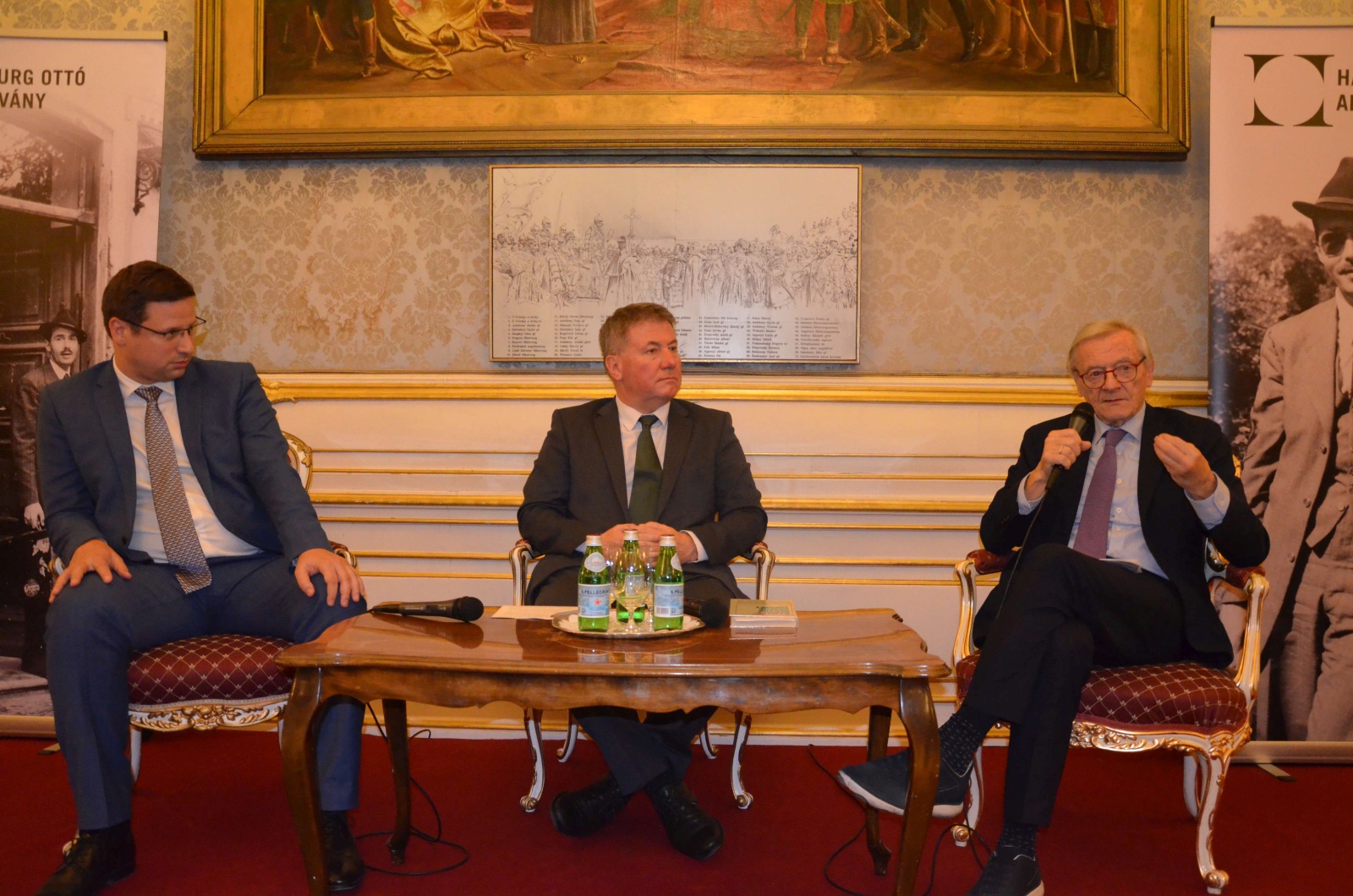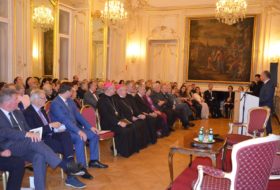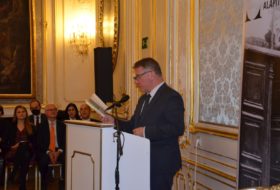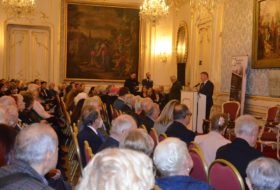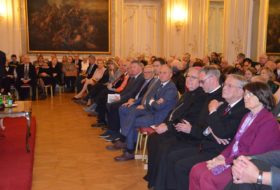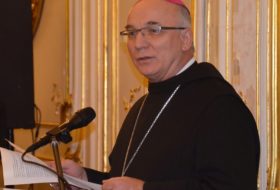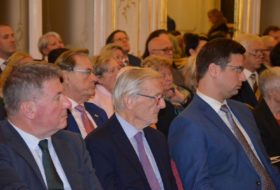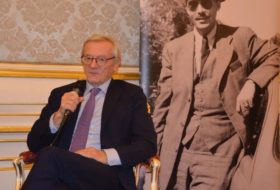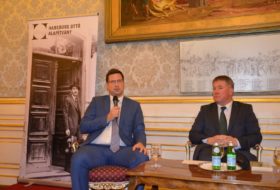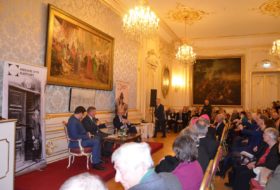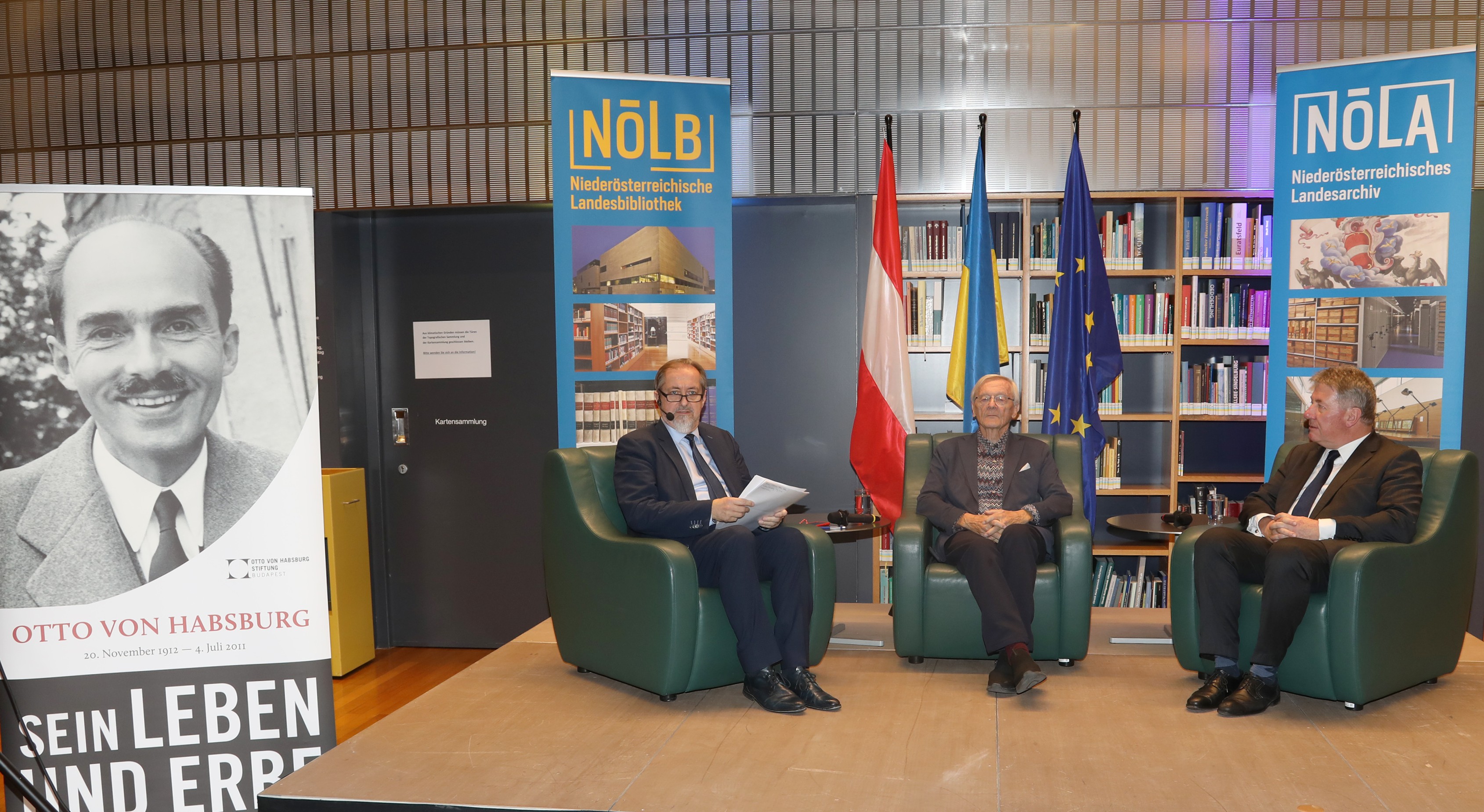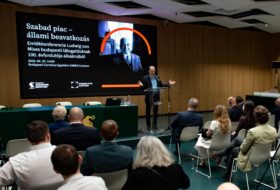The year 2022 is without a doubt one of the most important turning points in the recent history of Europe. However, the current challenging and critical conditions are not unprecedented, which also provides an opportunity to draw inspiration from past experiences. Otto von Habsburg, who was born 110 years ago, lived through many periods of crisis during his long life but his optimism, deep religious faith, political insight and ingenuity gave him strength in the most difficult times. His far-sighted political thinking and commitment to Europe have many lessons for later generations. This has prompted the organisers of the conference, the Otto von Habsburg Foundation, the Embassy of Hungary in Vienna and the Archabbey of Pannonhalma to recall certain aspects of the intellectual heritage of Otto von Habsburg that could be valuable and guiding for contemporary policy-making. Therefore, the event was not solely a commemoration but also an opportunity to reflect on the current situation in Europe.
The audience was greeted by Andor Nagy, Ambassador of Austria to Vienna, István Radda, former President of the Round Table of Hungarian Organisations in Austria and Gergely Prőhle, Director of the Otto von Habsburg Foundation. In his opening speech, Cirill Hortobágyi OSB, Archbishop of Pannonhalma, emphasized the importance of the legacy of Otto von Habsburg, which, like that of Saint Martin, is particularly important because it inspires later generations to think, act and create. At the end of his remarks, the head of the monastic community was pleased to announce that a memorial would soon be dedicated in Pannonhalma in honour of the last Austro-Hungarian heir to the throne and Benedictine student.
The highly attended conference included a panel discussion with Wolfgang Schüssel, former Austrian Federal Chancellor, Gergely Gulyás, Hungarian Minister of the Prime Minister’s Office, and Gergely Prőhle. They reviewed the intellectual legacy of Otto von Habsburg and discussed the relevance of his vision of Europe for today, and talked about how the realpolitik-minded Otto von Habsburg would have perceived the current global political situation, especially the war in Ukraine.
During the discussion, the former leading politician of the Austrian People’s Party pointed out, among other things, the importance of subsidiarity as a key principle of political and social order and recalled that Otto von Habsburg was also an advocate of a European integration that does not seek to create a homogeneous empire, but one that recognises national sovereignties arising from different historical experiences and applies the principle of subsidiarity for the common good. However, in addition to the need for decentralisation, he also referred to areas (security policy, global economic challenges, environmental protection) where he believed that joint EU action was needed and where, in his view, Otto von Habsburg would have encouraged collective efforts.
The Minister of the Prime Minister’s Office said that in the European Union consisting of 27 countries, it is natural that the member states see certain issues differently due to their varying national experiences and histories. Nonetheless, the European Union as an alliance is important to remain a viable and potent player in world politics. It is therefore crucial to find a modus vivendi between the sovereignist and federalist standpoints. This would result in a community policy that goes beyond ideological debates and concentrates on harmonising divergent positions.
On the war in Ukraine, the former Chancellor said that the military neutrality of Austria should remain beyond discussion but should not be accompanied by a lack of clear political support. At the same time, he admitted that he had also been deceived by the Russian President and was severely disappointed in his thinking on Russian policy. Presenting the position of Hungary, the Minister of the Prime Minister’s Office stressed that since the outbreak of the war in February, Hungary has been carrying out the most significant humanitarian action in the history of the country, which should leave no doubt about the Hungarian commitment.
The event also featured an exhibition on the life of Otto von Habsburg, compiled by the Otto von Habsburg Foundation, which will later be shown at the Collegium Hungaricum in Vienna.
